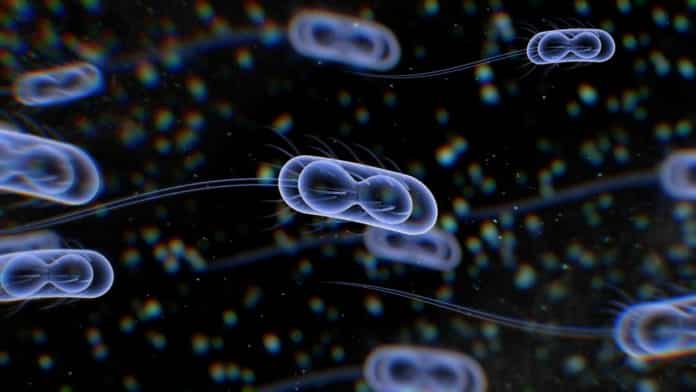Escherichia coli For Identification Of Human Carcinogenic Proteins
Escherichia coli bacteria has been harnessed by a group of researchers at Baylor College of Medicine and the University of Texas to help identify human proteins that may lead to DNA damage and play a key role in triggering cells to become malignant. This novel discovery could lead to the development of newer & advanced cancer therapies and will help in cancer diagnosis at a very early stage.
The researchers engineered bacteria to overexpress each of 4,000 E. coli genes. They also discovered biological mechanisms that underpin the DNA damage resulting from protein overproduction. The Scientists published their findings under a paper titled “Bacteria-to-Human Protein Networks Reveal Origins of Endogenous DNA Damage” in The Cell Journal.
Susan M. Rosenberg, a co-corresponding author from Baylor College of Medicine Houston stated that in the study they intend to unveil proteins which upon overproduction can cause DNA damage leading to cancer. Rosenberg commented that Cancer is a disease of mutations – Multiple Mutations in several genes in normal cells makes it turn to a cancerous cell.
Based on the concept of the cause of DNA damage by protein overproduction, the researchers devised an unconventional approach of identifying proteins via E.coli rather than directly working with human
proteins. Bacterial protein overproduction was studied by the team that leads to a cancerous state in bacterial cells. “Given DNA biology conservation across life, proteins that promote spontaneous DNA damage may be conserved, and their identification could potentially inform strategies for prevention, diagnosis, and treatment of disease, including cancer, aging, and pathogen evolution,” the team stated.The group then identified 284 human proteins with amino acid sequences similar to 58 of the E. coli DDPs, and that represented candidate human DDPs (hDDPs). They ascertained that the human DDPs were connected to cancer more often than a random set of proteins, whilst evaluation of protein and RNA data from sources such as The Cancer Genome Atlas (TCGA) implied that a number of the human DDPs were correlated with low patient survival and higher total tumor mutation loads in different forms of cancer. The team noticed that the data obtained highlighted the network properties of the 284 DDP homologs and their frequent overexpression in cancers. “The correlations of the 284 human homolog RNAs with tumor mutation loads and poor survival remain strong even when both known or predicted cancer drivers and human proteins validated as DNA damage-instigating here are removed.” – the team said
When the proteins were overproduced in human cells, it was noticed that half of it triggered DNA damage and mutation. These verified & tested human DDPs included different classes of protein that had not previously linked with any cancer condition.
Christophe Herman, PhD-professor at Baylor College said that they could successfully show how E.coli can help in Identification Of Human Carcinogenic Proteins and its mechanism in humans rapidly and at a lower cost.
In the paper published in Cell, the authors mention that “The ability to detect high DNA damage loads in cells could potentially make DNA damage screening attractive for early identification of at-risk individuals, useable before genome sequencing would identify disease-associated mutations,”.
Susan M. Rosenberg affirmed that with such positive results they will proceed ahead with basic research & clinical developments. The team is positive that this discovery will open newer avenues for finding answers to questions like How to identify people who are likely to develop cancer? How to Prevent it? Or How to Slow it down?
































